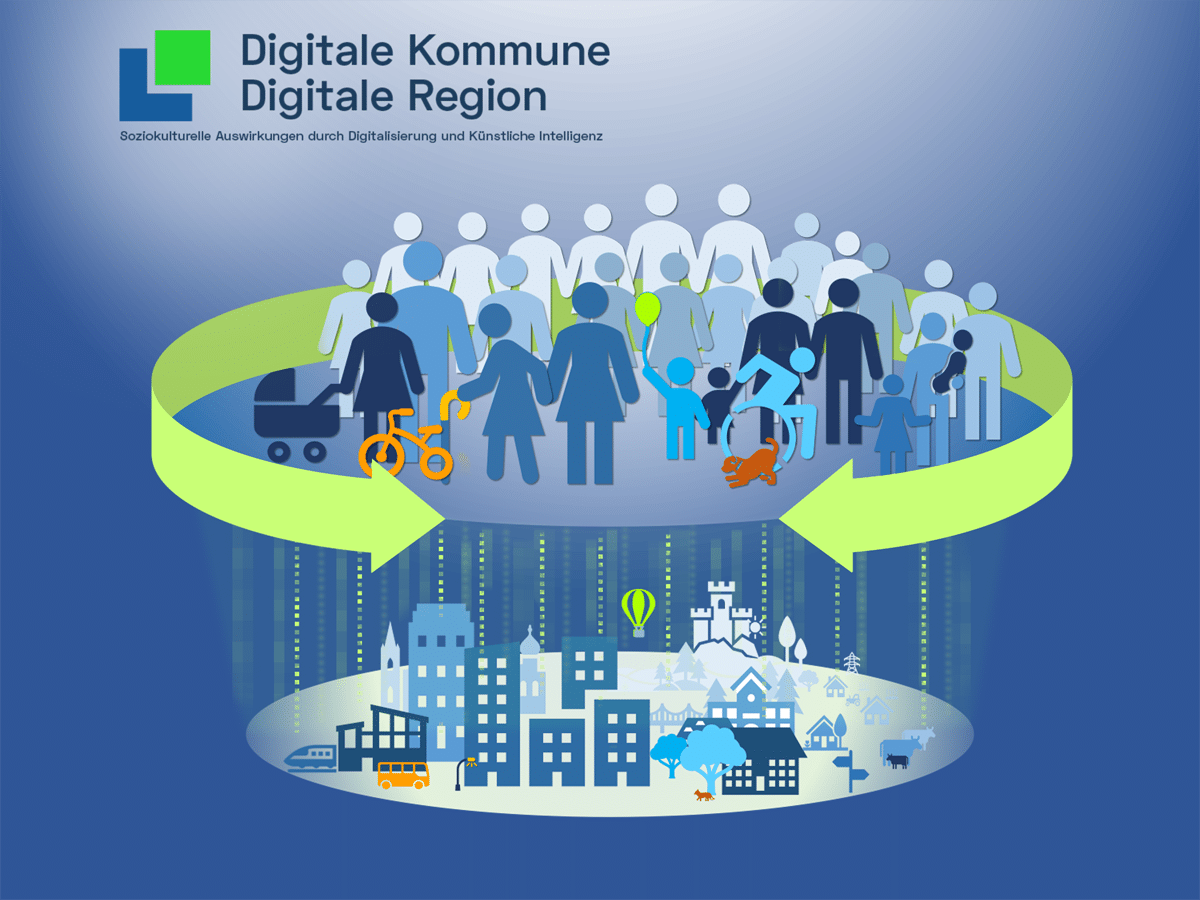The project puts the cultural, social and participatory challenges of digitalisation and artificial intelligence (AI) for municipalities in the spotlight. It has set itself the goal of researching the socio-cultural effects in different municipal fields of action and putting them up for discussion. The following questions will be discussed: How can municipalities shape a good life for their citizens in the age of digitalisation? What municipal and regional decisions need to be made now in order to prevent possible future negative effects of digitalisation?
When designing municipal and regional infrastructures, digitisation and artificial intelligence are often associated with the expectation of immediate positive effects: higher efficiency of public services, cost savings, better communication between citizens and administration. Mostly, the consideration remains limited to this technical-infrastructural level. Social impacts and risks, on the other hand, are rarely addressed. However, the decisions made at the municipal/regional level of governance always affect the quality of life and everyday life of the citizens. At the same time, the pressure to innovate and the belief in technology make it difficult to keep an eye on central social aspects such as the common good and the protection of resources. But this is precisely one of the core tasks of municipalities and regional authorities: to preserve the common good while balancing market, individual and economic as well as social and cultural interests and sustainable development goals.
We coordinate the project and conduct the study on two levels:
- Recording evident effects of digitalisation in the municipal context based on the results of literature research, interviews and focus groups and an online study. The resulting theses on causes, context and options for action are discussed and further developed with a feedback panel. The participatory feedback of the analysis results and theses by the experts from municipalities, science, serves both the critical assessment of the results and the integration of new relevant aspects.
- Identify and analyse the real needs of actors from municipal and civil society institutions and associations. The needs assessment is carried out via an online survey on the needs and requirements in the practical context of municipal digitisation projects.
As a result of the project, a collection of practical tools will be created that will provide municipalities with needs-based information, strategies and participation and networking options for planning and implementing their digitisation projects.
The aim is to support the actors in shaping digitisation in their municipality in such a way that it is sustainable and oriented towards the common good. The focus is on formats that strengthen the participation of citizens in the design of digitisation projects and thus enable everyone to share in the results.
Client: Umweltbundesamt
Duration: 08/2019 – 05/2022
Team: Prof. Dr. Christiane Dienel (Project Manager), Dr. Thomas Blanchet, Dr. Carina Brumme
Partner: Open Knowledge Foundation e.V.
Graphic: nexus Institute
